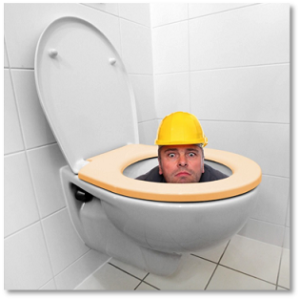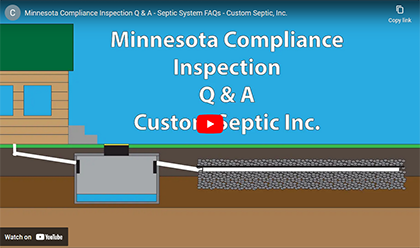 A septic tank’s purpose is to keep solids and grease from entering/clogging your drain field. Because there are some objects that cannot be broken down by the bacteria in your tank, they settle at the bottom. For proper septic system maintenance, it is recommended that you pump your tank every three to five years. In lieu of doing regular pumping however, people have turned to septic tank additives – products that break down inorganic materials. People flock to these products when there is a drain blockage. While there is much debate on whether these are beneficial or harmful to your septic tank, you need to know what they are and what their functions are. There are a few different types of septic tank additives that you can buy at your local hardware store, and they may be added to a septic system for several reasons.
A septic tank’s purpose is to keep solids and grease from entering/clogging your drain field. Because there are some objects that cannot be broken down by the bacteria in your tank, they settle at the bottom. For proper septic system maintenance, it is recommended that you pump your tank every three to five years. In lieu of doing regular pumping however, people have turned to septic tank additives – products that break down inorganic materials. People flock to these products when there is a drain blockage. While there is much debate on whether these are beneficial or harmful to your septic tank, you need to know what they are and what their functions are. There are a few different types of septic tank additives that you can buy at your local hardware store, and they may be added to a septic system for several reasons.
Types Of Septic Tank Additives
Although there are over a thousand different additive products that you can find in supermarkets, they can all be broken down into one of two categories: biological and chemical.
● Biological additives typically include bacteria, enzymes, and yeast, while chemical additives are organic or inorganic compounds. Biological additives are used because of their suggested ability to minimize the amount of grease, oil, and effluent solids within the tank; unfortunately, evidence exists that this can cause solids to find their way from the septic tank to the drain field and cause clogging in the process. These products are also known to kill the active bacteria that break down waste.
● Chemical additives like sulfuric acid, hydrogen peroxide, and baking soda have been used to address clogs in soil absorption systems so that they can once again work at full capacity. However, some of these additives have been found to compromise the structure of the system and reduce the permeability of the soil. Strong chemicals can erode the integrity of your septic tank and system.
When comparing biological vs chemical septic tank additives for potential advantages and disadvantages, you should know that chemical additives are far more likely to harm your septic system itself. Additives that are acid or alkali-based may cause corrosion and will sterilize the septic tank. Additionally, chemical additives can combine with your groundwater and potentially contaminate wells, ultimately compromising your drinking water.
Environmental Impact On Septic System Additives
Organic chemical additives such as benzene, naphthalene, and alkane are pollutants, and should not be used. Additives that include zinc sulfate, formaldehyde, and paraformaldehyde should also be avoided; unlike biological additives, chemical additives tend to be much more harmful to the environment.
Septic System Maintenance And Inspections In Minnesota
Protect the investment you have in your home and property today. Keep your septic system in good working order. If you have questions, concerns, or need a professional to come out and access your septic system maintenance, call Custom Septic Inc. today. With two locations and a service area of 50-mile radius of each, we are available for you! Call (763) 218-4769 in Big Lake, (763) 218-4769 in Menahaga, or fill out our online request form to schedule an appointment today!

 Now Accepting Major Credit Cards!
Now Accepting Major Credit Cards!
